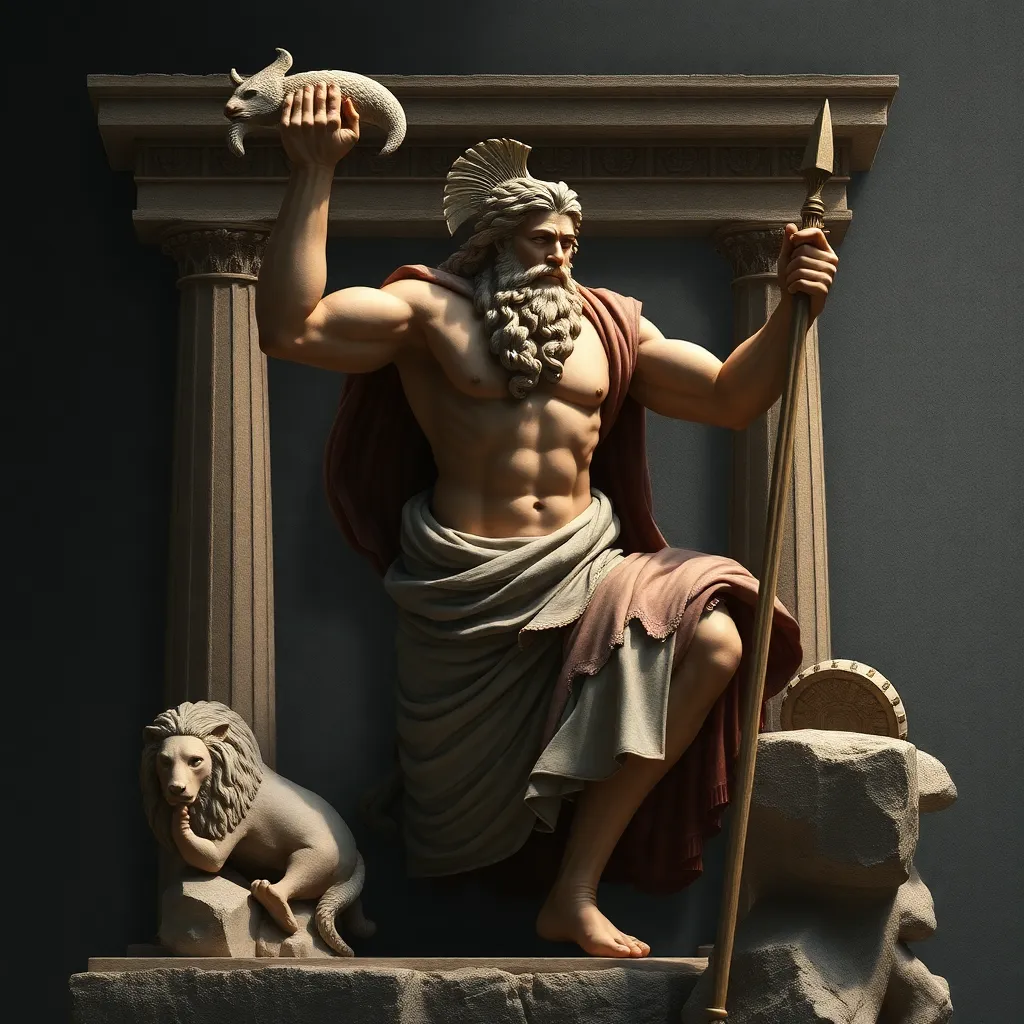Heracles and the Concept of Honor in Greek Society
I. Introduction
Heracles, known for his incredible strength and heroic feats, stands as one of the most celebrated figures in Greek mythology. His stories, filled with adventure, trials, and triumphs, not only entertain but also serve as a reflection of the cultural values of ancient Greece. Honor, a central tenet of Greek society, defined an individual’s identity and social standing. This article explores how Heracles embodies the cultural values of honor, heroism, and moral integrity, serving as a model for the Greeks and beyond.
II. The Mythological Background of Heracles
Heracles, originally named Alcaeus, was born to Zeus and the mortal woman Alcmene. From the moment of his conception, his life was plagued by the wrath of Hera, Zeus’s wife, who viewed him as a rival. Heracles’ early life was marked by remarkable feats, but it was his twelve labors that cemented his legacy as a hero.
- The Nemean Lion
- The Lernaean Hydra
- The Ceryneian Hind
- The Erymanthian Boar
- The Augean Stables
- The Stymphalian Birds
- The Cretan Bull
- The Mares of Diomedes
- The Girdle of Hippolyta
- The Cattle of Geryon
- The Apples of the Hesperides
- The Capture of Cerberus
These labors were not only feats of strength but also tests of Heracles’ character and resilience, showcasing his significance in Greek mythology as the epitome of heroism.
III. The Concept of Honor in Ancient Greece
In ancient Greece, honor, or “timē,” was paramount. It encompassed a range of virtues, including bravery, loyalty, and moral integrity. Honor defined one’s reputation and social standing, influencing every aspect of life.
Key aspects of honor in Greek culture include:
- Individual identity: A person’s honor was closely tied to their actions and achievements.
- Social status: Honor was a determining factor in one’s place within society, influencing relationships and power dynamics.
- Comparison to other virtues: While bravery and loyalty were admired, honor was the foundation upon which these virtues rested.
IV. Heracles as the Ideal Hero
Heracles epitomizes the ideal hero in Greek mythology, exhibiting attributes that reflect deep-rooted concepts of honor. His physical strength, bravery, and unwavering determination make him a figure of admiration.
Several key episodes from Heracles’ life exemplify his honor:
- His willingness to take on impossible tasks, such as slaying the Hydra.
- His selfless acts, including rescuing Prometheus from his eternal punishment.
- His dedication to protecting others, as seen in his battles against tyrants.
Heracles’ relationships with other characters, such as his mentor Chiron and his adversary Eurystheus, further illuminate the impact of honor on his life. These interactions often reflect the complexities of honor in a world where divine intervention and human action intertwine.
V. The Role of Honor in Heracles’ Labors
The twelve labors of Heracles serve as profound tests of his honor and virtue. Each labor not only challenges him physically but also morally and ethically.
For example:
- The Nemean Lion: Heracles demonstrates courage and strength, refusing to use weapons against an invulnerable beast.
- The Augean Stables: By cleaning the stables in a single day, he showcases ingenuity and determination.
- The Capture of Cerberus: His descent into the Underworld reflects both bravery and a commitment to his tasks.
Success in these labors solidified Heracles’ honor, while failure could have led to disgrace. The consequences of his actions often served as a reminder of the fragile nature of honor in Greek society.
VI. Heracles’ Legacy and Influence on Greek Society
Heracles’ impact on Greek literature and art is immense. He appears in countless works, from ancient tragedies to modern adaptations, symbolizing the archetype of the hero.
His legacy includes:
- Inspiration for artists and writers, who depict his feats in various forms.
- Representations in sculpture and pottery, often highlighting his strength and heroic deeds.
- His role as a symbol of honor, influencing later cultural contexts and hero narratives.
Even today, Heracles continues to resonate in discussions of honor, heroism, and moral integrity, reflecting the timeless nature of his story.
VII. Critiques and Contradictions of Honor in Heracles’ Story
Despite his heroic status, Heracles’ story is not without contradictions. Certain instances challenge traditional notions of honor, prompting deeper reflection.
For example:
- His bouts of madness, induced by Hera, leading him to commit acts that result in unintended consequences.
- The role of fate and the gods: Heracles often grapples with divine intervention, questioning the autonomy of his honor.
- Moral ambiguities: His actions, though heroic, sometimes involve violence and moral dilemmas.
This complexity enriches the narrative of Heracles, inviting discussions on the nature of honor and the human condition.
VIII. Conclusion
In summary, Heracles embodies the concept of honor in ancient Greece, serving as a model of bravery, integrity, and resilience. His story reflects the cultural values of his time and continues to resonate in contemporary discussions about honor and heroism.
As we reflect on Heracles’ journey, we recognize the relevance of his experiences in understanding the complexities of honor in society. His enduring legacy invites us to explore the intricate relationship between heroism, morality, and the pursuit of honor.




